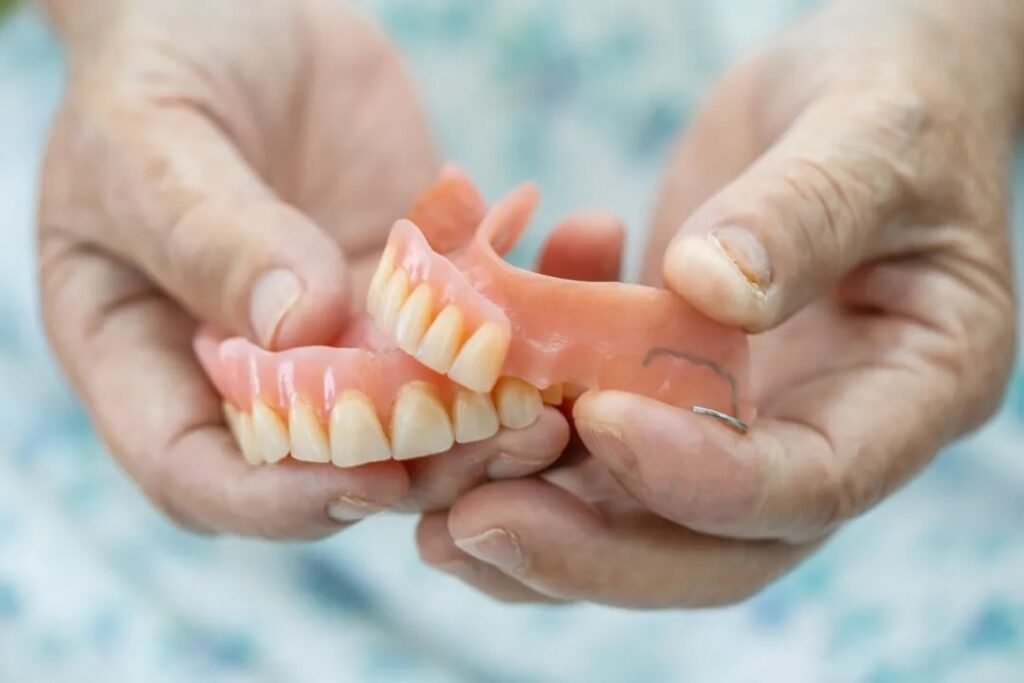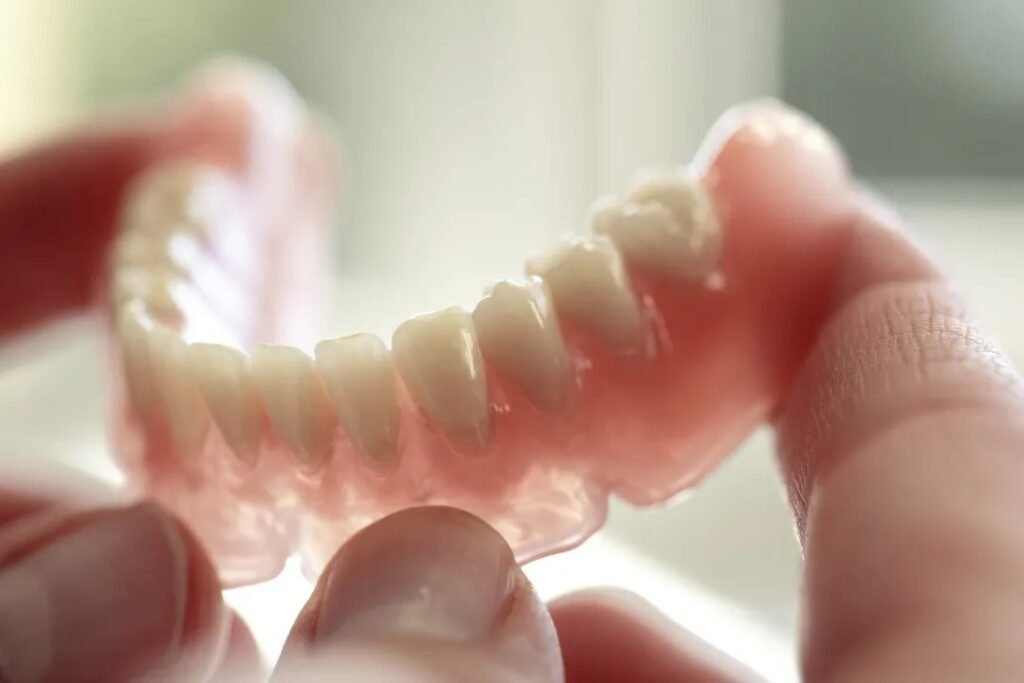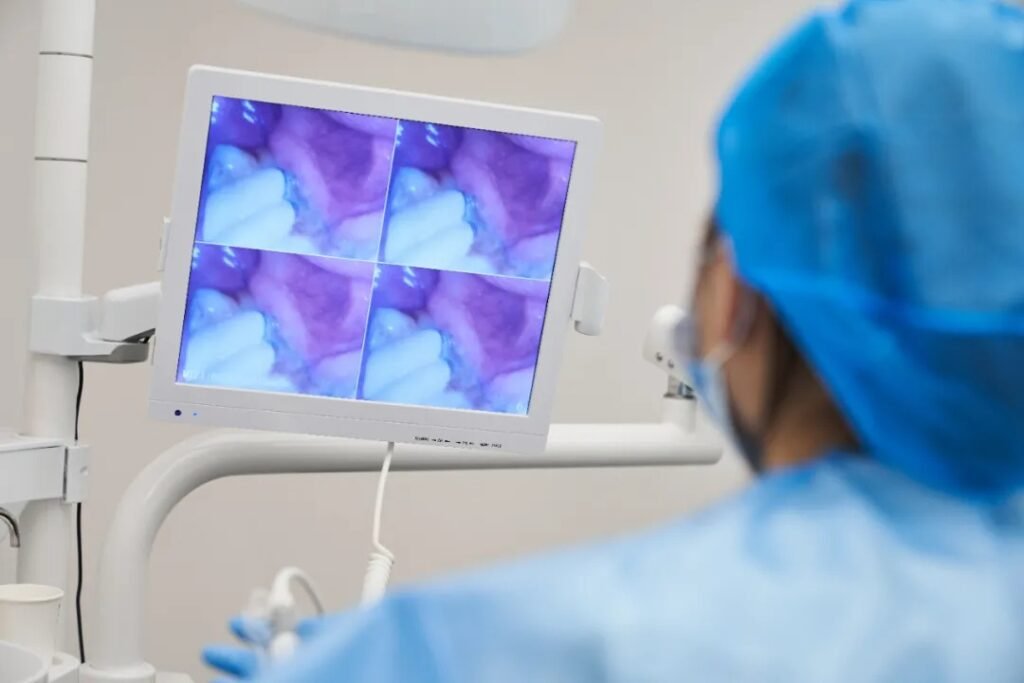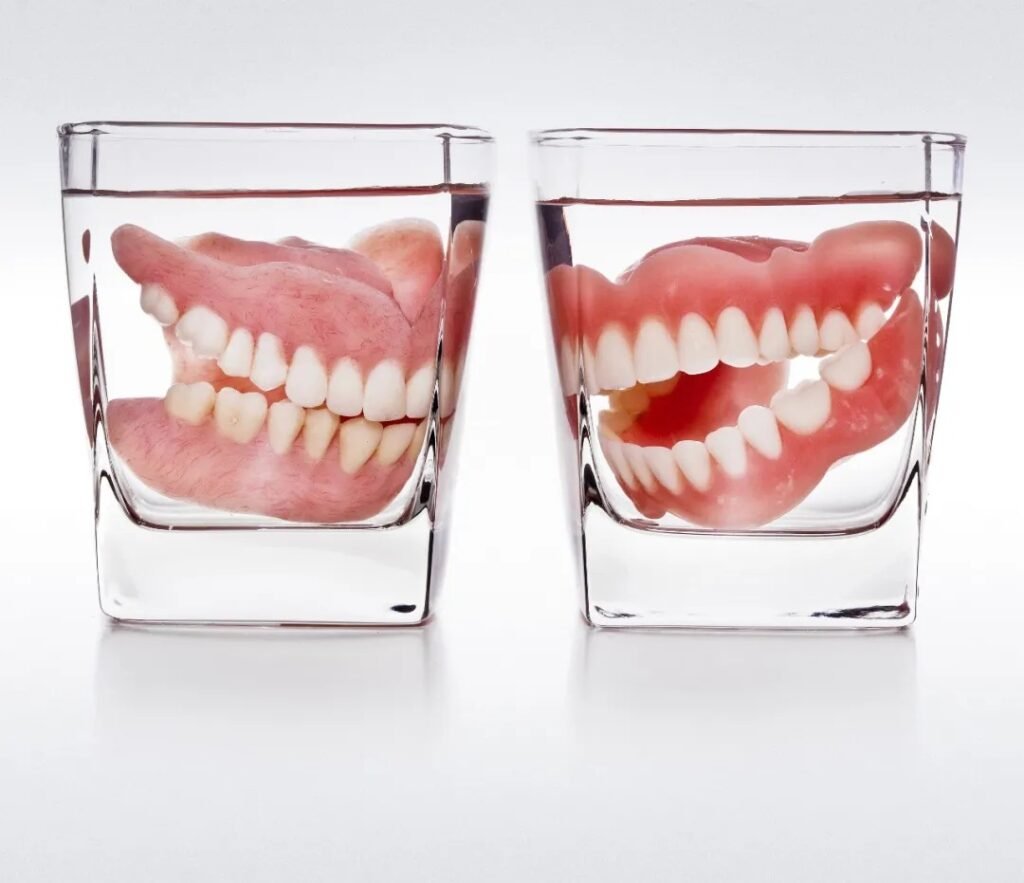Removable Dentures: A Practical Option for Seniors with Complex Health Conditions
For elderly patients with multiple underlying health issues and poor oral conditions, removable dentures can be a practical and convenient tooth replacement option. However, wearing dentures is not a “fit and forget” solution—proper daily care is essential for maintaining oral health.
Improper handling, lack of proper cleaning tools, and limited oral care knowledge are common problems. To help, AiHealth has summarized some frequently seen issues in clinical practice to provide useful guidance for denture wearers.

What Are Removable Dentures?
Removable dentures are a type of dental prosthesis that use the remaining natural teeth and gum tissue to restore missing teeth. Simply put, any dental prosthesis that can be inserted and removed by the patient falls under this category.
There are three main methods of tooth replacement today:
- Removable dentures
- Fixed bridges
- Dental implants
While fixed bridges and implants are gaining popularity, both require invasive treatment—bridges involve grinding down natural teeth, and implants require surgery. They also tend to be more expensive. Removable dentures, by contrast, remain a cost-effective, versatile, and sometimes the only viable treatment option.

Situations where removable dentures are often the best choice include:
- Multiple missing teeth with few remaining natural teeth (not suitable for bridges)
- Insufficient bone quality or volume for implants
- Patients with serious systemic health problems (e.g., diabetes, hypertension, heart disease)
- Temporary replacement after extractions while healing
- Patients with jawbone or palate defects
- Tooth mobility from periodontal disease combined with tooth loss
Common Mistakes to Avoid with Removable Dentures
- Wearing dentures overnight
Many seniors prefer to keep dentures in while sleeping for convenience. This can be dangerous. If a denture loosens during sleep, it may slip into the throat, causing choking, esophageal injury, or even damage to internal organs. - Wearing the same set for too long
Some believe that once they “get used” to a set, they can wear it indefinitely. This is incorrect. Dentures accumulate plaque and bacteria if not properly cleaned, increasing the risk of oral and systemic diseases. Prolonged use also accelerates bone resorption, making the gums thinner and dentures less stable. Dentists generally recommend replacing dentures every 5 years.
How to Take Care of Removable Dentures?
Daily care is key to keeping dentures and your mouth healthy:
- Remove and clean after every meal. Brush both your natural teeth and your dentures carefully with a soft-bristle brush and non-abrasive gel toothpaste.
- Proper cleaning. When not wearing them, soak dentures in a cup of clean water. Avoid hot water or salt solutions, which can damage the material. Instead, use professional denture cleaning tablets—such as those included in the AiHealth Denture Care Kit—1–2 times per week.
- Handle with care. Avoid chewing overly hard or sticky foods. When cleaning, do not bend, squeeze, or drop the dentures to prevent breakage or deformation.
- Regular check-ups. Even with dentures, routine dental visits are essential to monitor oral health and fit.
✨ With the AiHealth Denture Care Kit, seniors can simplify daily denture care, reduce health risks, and keep their smiles healthy and comfortable for years to come.



